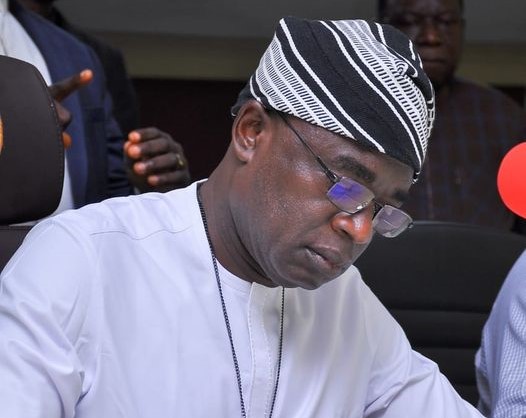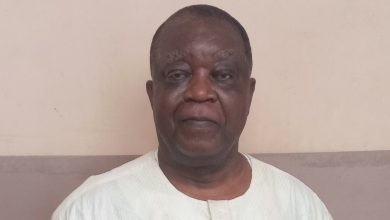Alia suspends Benue commissioner for justice for filing suit challenging legality of EFCC
My administration is holding accountable those who embezzled money and drained our state dry. The EFCC and ICPC are assisting us in this effort.

Hyacinth Alia, governor of Benue, has suspended Fidelis Mnyim, the state’s attorney general and commissioner for Justice and public order.
In a statement on Wednesday, Tersoo Kula, the chief press secretary (CPS) to the governor, said Alia suspended the commissioner for joining states challenging the establishment of the Economic and Financial Crimes Commission (EFCC) and the Independent Corrupt Practices and Other Related Offences Commission (ICPC).
“No appointee is permitted to act unilaterally. No matter how pressing or urgent the issue is, one must resort to due consultations with me or appropriately brief me and seek my permission before acting, especially in a sensitive matter such as this,” Kula quoted the governor to have said.
“My administration is holding accountable those who embezzled money and drained our state dry. The EFCC and ICPC are assisting us in this effort.
“How can I now turn around and begin to challenge these watchdogs? I gave no permission for him to enter an appearance for the state. Because he acted on his own, I hereby suspend him indefinitely pending a satisfactory explanation of his actions.”
On Tuesday, the supreme court reserved judgement in a suit filed by 19 states challenging the constitutionality of the laws establishing the EFCC.
While two states – Imo and Bauchi – joined the suit as co-plaintiffs, Osun state sought a consolidation of the suit, while three states – Anambra, Ebonyi and Adamawa – withdrew their suits.
The 19 states still in the suit are Kogi, Kebbi, Katsina, Sokoto, Jigawa, Enugu, Oyo, Benue, Plateau, Cross River, Ondo, Niger, Edo, Bauchi, Imo, Osun, Nasarawa, Ogun, and Taraba.
The states argued that it was the UN Convention against corruption that was reduced into the EFCC Establishment Act and that in enacting this law in 2004, the provision of Section 12 of the Nigerian constitution was not followed.
They argued that in bringing a convention into the Nigerian law, the provision of Section 12 must be complied with.
The court is to communicate a date for judgement to all parties.





